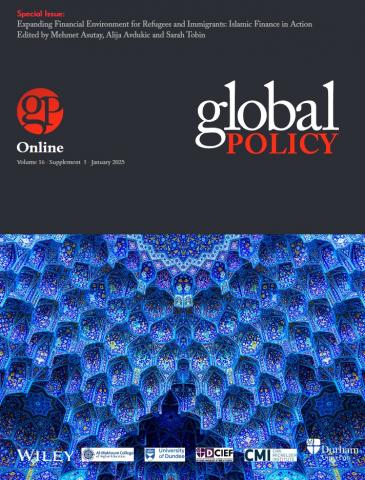
This special issue of Global Policy brings together a collection of scholarly works that explore Islamic finance's potential to promote financial inclusion and empowerment among refugees and immigrant communities. The papers unpick the synergies between Islamic finance and entrepreneurship by focusing on marginalised groups, such as Muslim refugees and immigrant entrepreneurs. The research aims to bring substantive Islamic morality back into Islamic finance institutions and their operations, and contribute to the broader debates on refugees and immigrants' emancipation.
Special Issue Articles
Clashing Moral Economies Among Norway's Muslim Entrepreneurs - Mari Norbakk
The authors are grateful for the funding for this publication provided by the ‘New Scots Integration Delivery Research Project’ at the Al-Maktoum College of Higher Education, Dundee, Scotland, funded by the Scottish Government and the EU Asylum, Migration and Integration Fund (the European Union), to the ‘Invisible Ceiling Project’ at the CMI Bergen, Norway, funded by the Norwegian Research Council and also to Durham Centre for Islamic Economics and Finance at Durham University Business School for their academic support.
Release Date